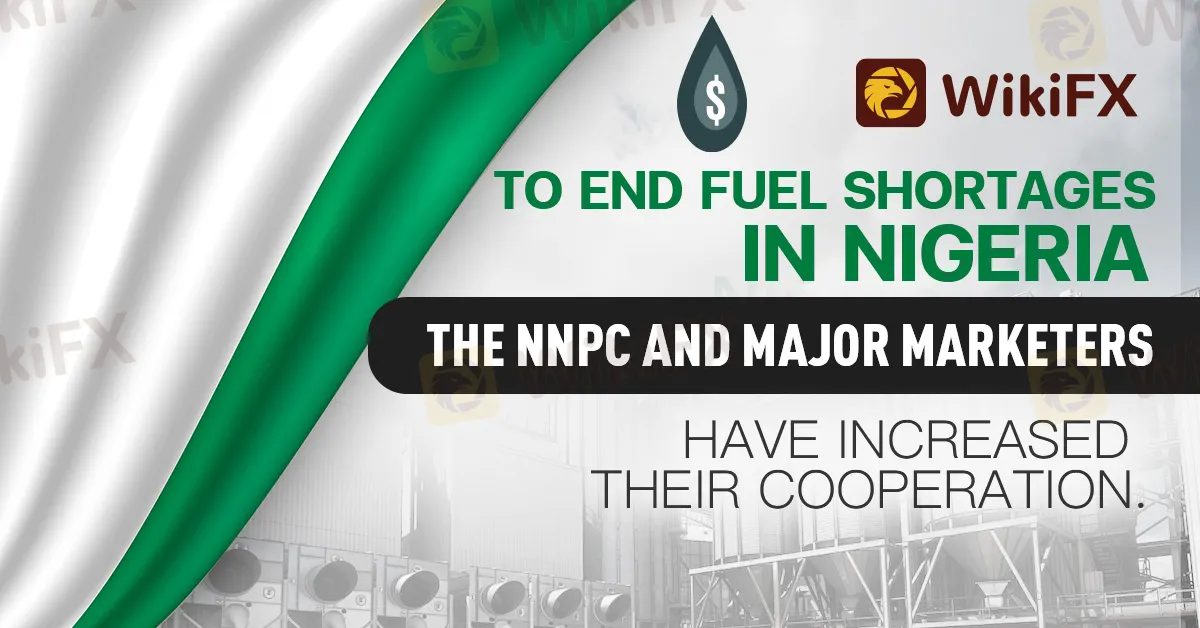简体中文
繁體中文
English
Pусский
日本語
ภาษาไทย
Tiếng Việt
Bahasa Indonesia
Español
हिन्दी
Filippiiniläinen
Français
Deutsch
Português
Türkçe
한국어
العربية
TO END FUEL SHORTAGES IN NIGERIA, THE NNPC AND MAJOR MARKETERS HAVE INCREASED THEIR COOPERATION.
Abstract:The Nigeria National Petroleum Company (NNPC) Limited and the Major Oil Marketers Association of Nigeria (MOMAN) have increased their cooperation in an effort to end the present statewide gasoline shortage.

The Nigeria National Petroleum Company (NNPC) Limited and the Major Oil Marketers Association of Nigeria (MOMAN) have increased their cooperation in an effort to end the present statewide gasoline shortage.
This is in response to the demand for an immediate federal government intervention to improve gasoline made by oil marketers and petroleum depot operators operating under the auspices of the Depot and Petroleum Products Marketers Association of Nigeria (DAPPMAN).
The current shortage of gasoline at filling stations, MOMAN's chief executive officer, Mr. Clement Isong, said this yesterday in Lagos.
The NNPC downstream management had been having daily logistic emergency meetings to discuss ways to increase the supply of gasoline.
He asserts that NNPC will improve the nation's distribution of petroleum products.
To increase efficiency, we are performing depot to depot check-ins and check-outs with NNPC.
Additionally, our members work together to stabilize different MOMAN stations.
To minimize supply gaps, “we set it up so that any MOMAN member who does not have product can pick from fellow members' depot,” he said.
Isong added that the effort aimed to increase the gasoline supply at gas stations all over the nation.
NNPC and MOMAN met operationally to discuss how to best distribute goods throughout the nation.
The logistics meeting, he continued, “was to assure proper product delivery to stations across the country.”
The helmsman said that MOMAN members will be bridging product supply gaps during the course of the weekend and at night.
He continued by saying that the shortage was brought on by a delay at the port when products were being brought in from offshore.
In the meantime, DAPPMAN has urged prompt action by the federal government to address the ongoing fuel shortage being experienced.
Mrs. Winifred Akpani, the organization's chairman, requested the Nigerian Maritime Administration and Safety Agency (NIMASA) and the Nigerian Ports Authority (NPA) to abide by the federal government's order to stop paying port fees in dollars for imported petroleum products.
The Central Bank of Nigeria (CBN) window, according to Akpani, would improve gasoline, and usher in a system of sustainability in terms of storage, distribution, and supply across the country.
According to Akpani, “DAPPMAN now calls on the government to create a level playing field in the industry by granting petroleum marketers access to FX at the CBN exchange rate for their operations.”
He emphasized that acquiring foreign exchange at the official rate will the increase the supply of fuel throughout the country
She continued by saying that the cost of obtaining foreign currency for transactions with a Nigerian domicile had put petroleum marketers in a precarious situation.
While stations controlled by IPMAN members sold fuel for between N220 and N260 per litre, some filling stations owned by big oil marketers were seen selling it for the regulated price of N170 per litre.
Before vehicles are allowed to enter filling stations, many of them collect N100 at the entrance. Additional N100 is then used to sell the product.

Disclaimer:
The views in this article only represent the author's personal views, and do not constitute investment advice on this platform. This platform does not guarantee the accuracy, completeness and timeliness of the information in the article, and will not be liable for any loss caused by the use of or reliance on the information in the article.
Read more

Geopolitical Events: What They Are & Their Impact?
You've heard many times that geopolitical events have a significant impact on the Forex market. But do you know what geopolitical events are and how they affect the FX market? Let us learn about it today.

Why Do You Feel Scared During Trade Execution?
Trade execution is a pivotal moment for traders. It is when analysis turns into action, and potential profits or losses become reality. However, for many traders, this moment is accompanied by fear. Why does this happen, and how can you address it?

WikiEXPO Global Expert Interview: Simone Martin—— Exploring Financial Regulation Change
In the midst of financial innovation and regulation, WikiGlobal, the organizer of WikiEXPO, stays abreast of industry trends and conducts a series of insightful and distinctive interviews on pivotal topics. We are delighted to have the privilege of inviting Simone Martin for an in-depth conversation this time.

MultiBank Group Wins Big at Traders Fair Hong Kong 2024
Discover how MultiBank Group, a global leader in financial derivatives, secured three prestigious awards at Traders Fair Hong Kong 2024, highlighting its innovative trading solutions and industry excellence.
WikiFX Broker
Latest News
Geopolitical Events: What They Are & Their Impact?
Volkswagen agrees deal to avoid Germany plant closures
Top 10 Trading Indicators Every Forex Trader Should Know
WikiEXPO Global Expert Interview: Simone Martin—— Exploring Financial Regulation Change
TradingView Launches Liquidity Analysis Tool DEX Screener
MultiBank Group Wins Big at Traders Fair Hong Kong 2024
'Young investors make investment decisions impulsively to keep up with current trends' FCA Reveals
Why Do You Feel Scared During Trade Execution?
CySEC Settles Compliance Case with Fxview Operator Charlgate Ltd
Scope Markets Review: Trustworthy or Risky?
Currency Calculator


